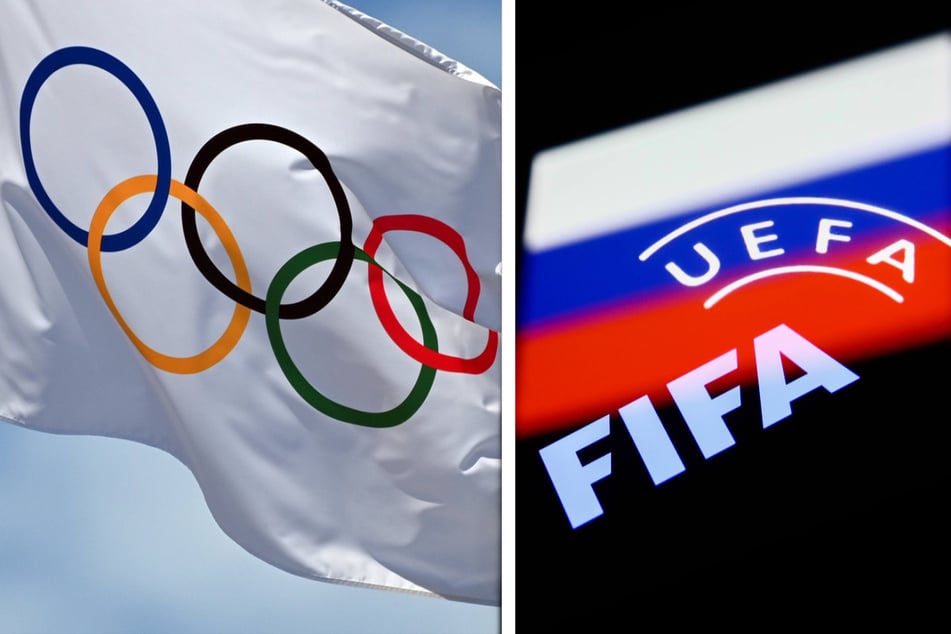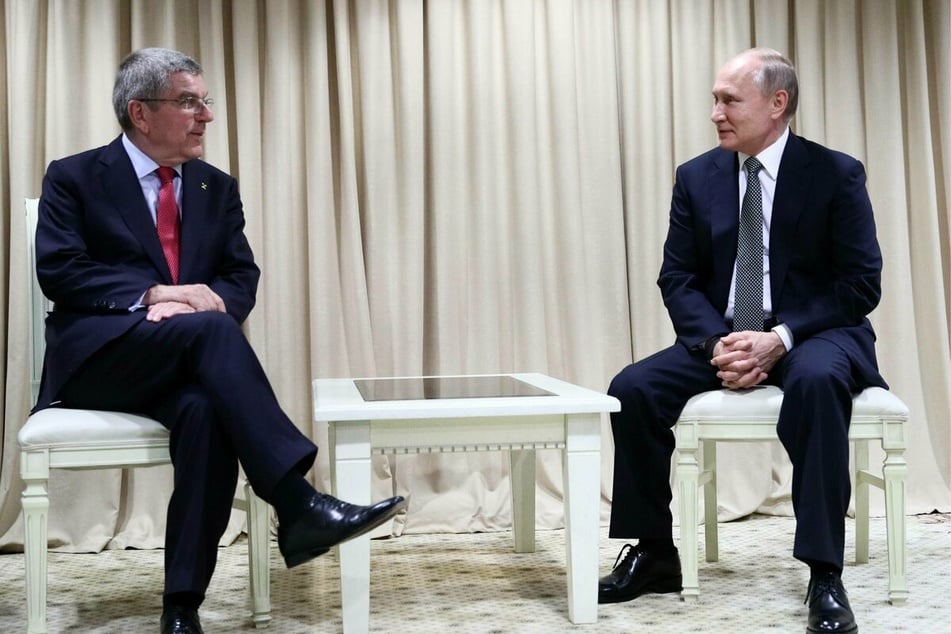FIFA and UEFA ban Russia after Olympic committee recommendation
Lausanne, Switzerland - The International Olympic Committee (IOC) on Monday opened the door for sports federations to exclude athletes from Russia and Belarus from international events, and soccer's FIFA and UEFA swiftly followed suit.

The unprecedented move by the IOC Executive Board came in the wake of Russia's invasion of Ukraine, calling it a "breach of the Olympic Truce by the Russian government and the government of Belarus through its support in this."
"In order to protect the integrity of global sports competitions and for the safety of all the participants, the IOC EB recommends that International Sports Federations and sports event organizers not invite or allow the participation of Russian and Belarusian athletes and officials in international competitions," it stated.
While the IOC had in the past stopped short of banning Russia outright over its numerous doping practices, it has now decided to act tough – also feeling the pressure after a growing number of countries and sports federations said they would not compete against Russians amid the Ukraine conflict.
With that in mind, soccer's ruling body FIFA and its European governing body UEFA have suspended Russian clubs and national teams from all competitions "until further notice," the federations said on Monday.
"Football is fully united here and in full solidarity with all the people affected in Ukraine. Both Presidents hope that the situation in Ukraine will improve significantly and rapidly so that football can again be a vector for unity and peace amongst people," a joint statement said.
The decision is a shakeup for the World Cup as Russia responds to the IOC

FIFA's decision means Russia won't be allowed to play next month's World Cup playoffs and the 2022 World Cup in Qatar as things stand.
Russia was originally to host Poland on March 24 in a World Cup playoff, and the winner would play Sweden or the Czech Republic. All three of those teams said they would not compete against Russia. Switzerland said the same, including a women's Euro group match this summer. Norway, Denmark, and Scotland had also said they would not play against Russian teams.
The IOC had suggested last week that Russians and Belarusians could compete without their national symbols, but the executive board changed its mind to ensure fair competition.
"While athletes from Russia and Belarus would be able to continue to participate in sports events, many athletes from Ukraine are prevented from doing so because of the attack on their country," the IOC added.
The IOC also stripped Russian president Vladimir Putin and two other top Russian political officials of their Olympic Order in an ad-hoc decision. The Olympic Order is the highest award of the Olympic Movement and is awarded for efforts worthy of merit in the cause of sport.
The Russian Olympic Committee (ROC) "strongly" condemned the IOC recommendation.
"We have only one comment – we strongly object to them," ROC president Stanislav Pozdnyakov said in a statement.
"Today's decision of our colleagues from the International Olympic Committee, in our opinion, contradicts both the regulatory documents of the IOC and the Charter, first of all, and the spirit of the Olympic movement, which should unite and not divide," he added.
Cover photo: Collage: IMAGO/Sven Simon & NurPhoto